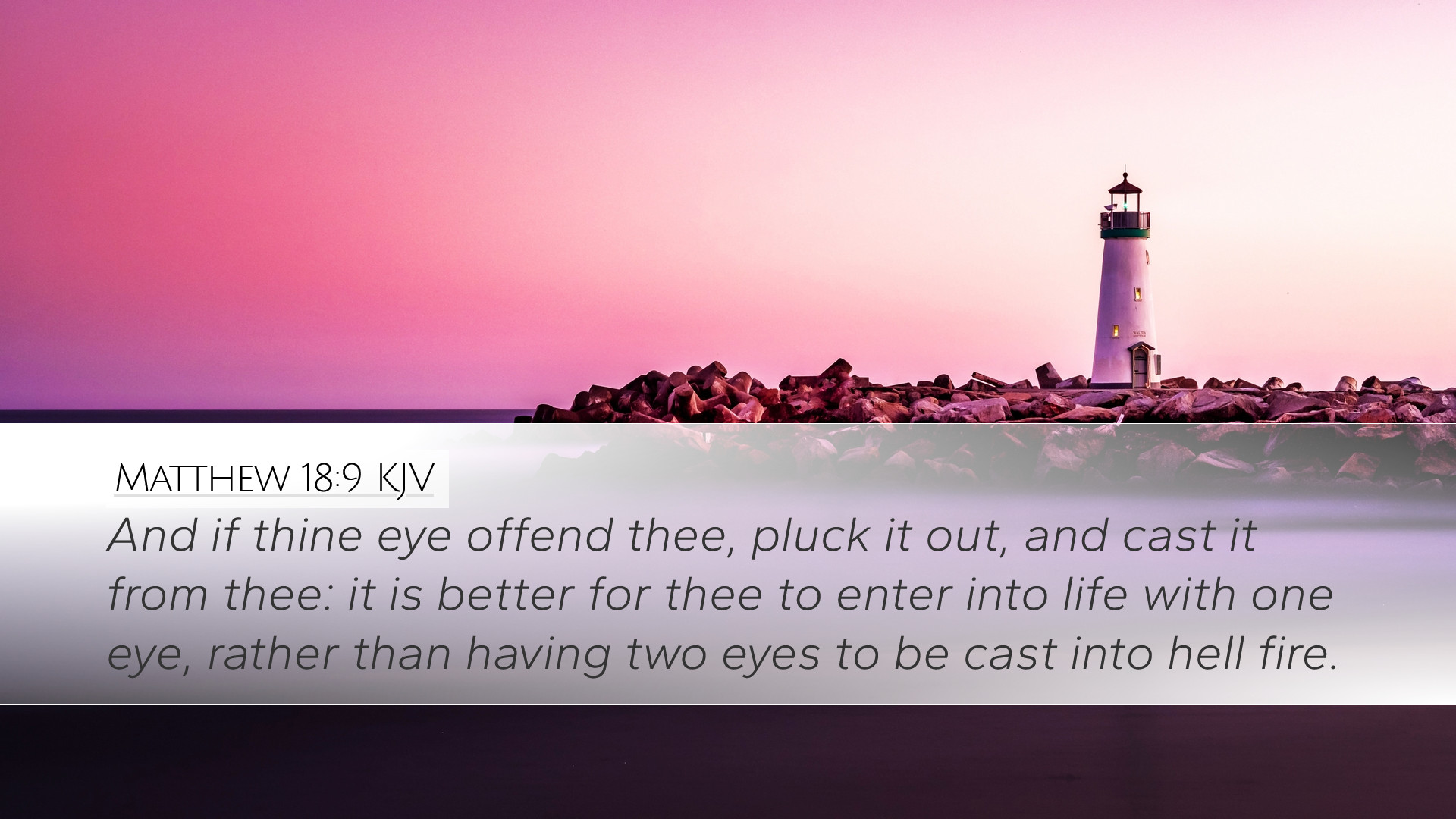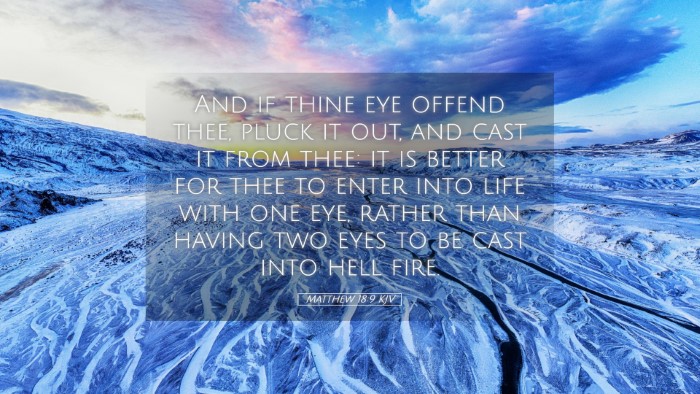Matthew 18:9 Commentary
Verse: "And if thine eye offend thee, pluck it out, and cast it from thee: for it is profitable for thee that one of thy members should perish, and not that thy whole body should be cast into hell."
Introduction
This verse presents a profound teaching by Jesus regarding the severity of sin and the drastic measures that may be necessary to maintain spiritual integrity. The wisdom of the ages contained in this passage has been echoed through centuries by various theologians and biblical scholars.
Exegesis
The core message of this verse revolves around the concept of sin and its consequences. Jesus uses hyperbolic language to emphasize the importance of dealing with sin swiftly and with determination.
Interpretation of "Offend"
In this context, the term "offend" refers to causing one to stumble or to sin. Matthew Henry notes that the phrase implies temptation that leads one to fall into sin, suggesting that anything in life that leads us away from God must be dealt with decisively.
The Eye as a Symbol
Adam Clarke elaborates on the symbolism of the eye, suggesting it represents the source of temptation and sin. The eye can be a window to moral decay if not controlled, hence the admonition to "pluck it out" serves as a powerful metaphor for severing ties with what entices us to sin.
Drastic Remedies
Albert Barnes underscores that the drastic action of "plucking out the eye" signifies a commitment to spiritual health. Just as a surgeon might remove a diseased member to save the body, so believers must make painful but necessary sacrifices in their lives to avoid eternal damnation.
Spiritual Implications
The implication of the advice given in this verse extends beyond mere physical actions; it touches the heart of discipleship and self-denial. Believers are urged to recognize the value of their spiritual life over physical comforts or desires.
Profitability of Sacrifice
The phrase "for it is profitable" indicates that the benefits of forsaking sin, even at a personal loss, far outweigh the consequences of indulgence. Matthew Henry writes about the eternal perspective believers must adopt, viewing earthly sacrifices as trivial compared to the joy of salvation.
Concept of Hell
The reference to hell is significant for understanding the urgency of Jesus’ message. Clarke emphasizes that the fear of hell epitomizes God’s justice, which serves as caution against taking sin lightly. The eternal consequences of unrepented sin are far worse than any temporal sacrifice made to escape it.
Practical Applications
This passage does not merely call for radical actions but encourages believers to introspect and identify the “offensive members” in their lives. Here are practical applications derived from this teaching:
- Self-Examination: Regularly assess areas in life where temptations lie, and take practical steps to avoid them.
- Accountability: Engage with trusted friends or mentors who can help point out blind spots and encourage growth.
- Limit Exposure: Consider setting boundaries to reduce exposure to unhealthy influences—be they media, relationships, or environments.
- Prayer and Fasting: Utilize spiritual disciplines as tools to empower personal discipline and seek God's guidance.
Conclusion
Matthew 18:9 is a striking reminder of the serious nature of sin and the lengths to which believers must go to ensure their spiritual well-being. By heeding the words of Jesus and the insights from esteemed commentaries, we gain a clearer understanding of the necessity of sacrifice for the sake of our eternal souls.
By actively employing the lessons from this passage, individuals can grow in their faith and avoid the perils of unguarded living. It is a call to vigilance, reflection, and, most importantly, action in the pursuit of holiness.


